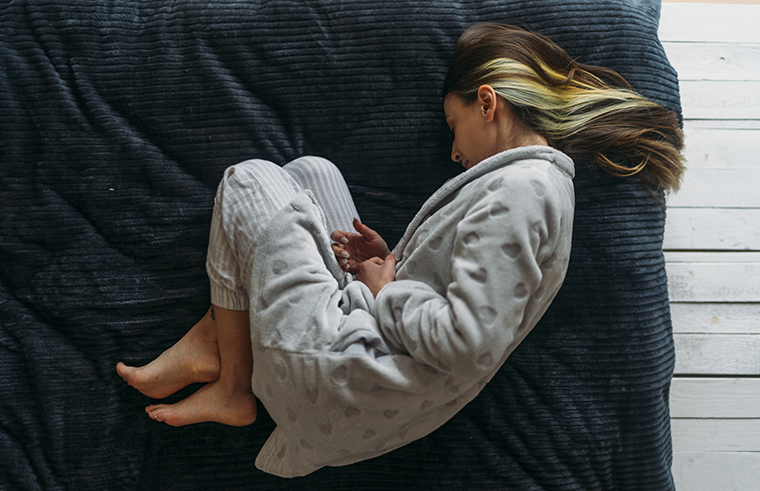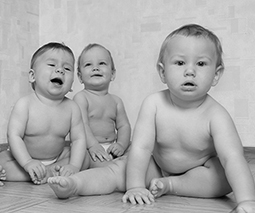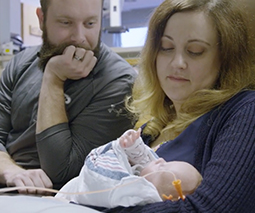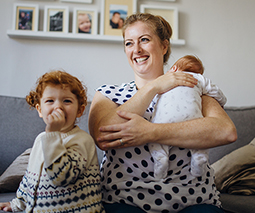Endometriosis: The silent condition that can affect a woman’s fertility

Despite 10 percent of women suffering from endometriosis at some point in their life, the condition – which can be incredibly painful and cause infertility – is rarely spoken about. But the more you know about the disease, the better equipped you can be at identifying its symptoms and seeking help.
What is endometriosis?
Endometriosis is a disorder that occurs when a female’s body tissue, similar to the lining of the uterus (endometrium), grows outside the uterus in other parts of their body. Normally this tissue is what is shed from the uterine lining each month during a woman’s period, or is where an embryo settles and grows during pregnancy.
But when it starts to grow in other places it can cause a LOT of problems, including pain, infertility and if pregnant, premature birth. Most often, endometriosis affects the reproductive organs, but it’s also can also be found on the bowel and bladder, and even in muscles, joints, the lungs and brain. Unfortunately if your mother or sister has it then you’re more likely to inherit the condition too. Endometriosis is estimated to cost Australia $7.7 billion annually in loss of work productivity and healthcare.

The signs and symptoms
Some women experience no symptoms whatsoever, however for most the biggest symptom is chronic, debilitating pain every month around their period. A lot worse than the normal monthly menstruation aches, this is pain which stops you from functioning properly, can render you immobile and affects not only your daily life but your mental state as well. Other symptoms include:
- Fatigue
- Ovulation pain
- Pain during or after sex
- Pain with bowel movements or urination
- Pain in your pelvic region, lower back or legs
- Frequent urination or trouble holding on
- Heavy or irregular bleeding
Usually the symptoms appear when you’re a teenager, but often you’re not diagnosed until when you’re in your late 20s or 30s as pain either increases or you’re having difficulty falling pregnant. The only way to be properly diagnosed is for a laparoscopy to take place – surgery through your belly button and a biopsy (tissue sample) taken.
How it affects fertility
Around 30 percent of women with endometriosis have difficulty falling pregnant, often due to the damage it has caused such as scarring of the fallopian tubes and ovaries which can prevent the egg travelling down the fallopian tube and implanting in the uterus. In some cases where treatment isn’t effective, IVF is used to help a woman with the condition conceive. Recent studies have also shown that women with endometriosis who do fall pregnant are often at risk of delivering early, needing a c-section, bleeding, pre-eclampsia and high blood pressure. Although, many women with endometriosis do successfully conceive and deliver healthy babies, so it’s important to not give up hope.
How to treat it
There are three different types of treatment for endometriosis: medications (hormonal or pain relief), surgical operations (via laparoscopy or laparotomy, where tissue and scar damage is removed) and complementary treatments (such as physiotherapy, psychology, alternate medicine, etc.). Unfortunately there is no cure, even removing the uterus via a hysterectomy will not work, but by exploring the treatment options with your doctor you might find one that works best for you.
Celebrities get it too
In the recent past, more and more celebrities have been speaking out about their battle with endometriosis, which has been a huge comfort to other women and young girls around the world suffering from the disease. Emma Wiggle, Jaime King, Julianne Hough, Emma Bunton, and Ada Nicodemou have openly discussed their struggles (including several fertility issues). Lena Dunham even famously had to cancel press tours because of it and more recently wound up in hospital for a fifth endometriosis surgery, mere hours after putting on a brave face on the red carpet at the Met Gala.
To all the women out there suffering with this condition, remember you’re not alone and we wish you all the best with your treatment and fertility goals. If you believe you may be experiencing symptoms of endometriosis, please speak to your doctor.









